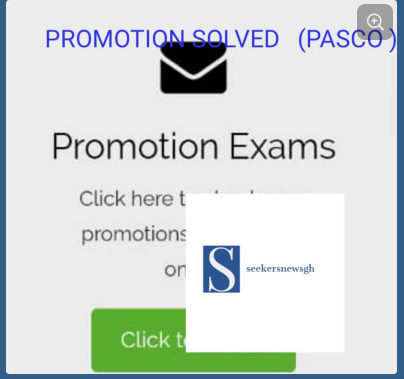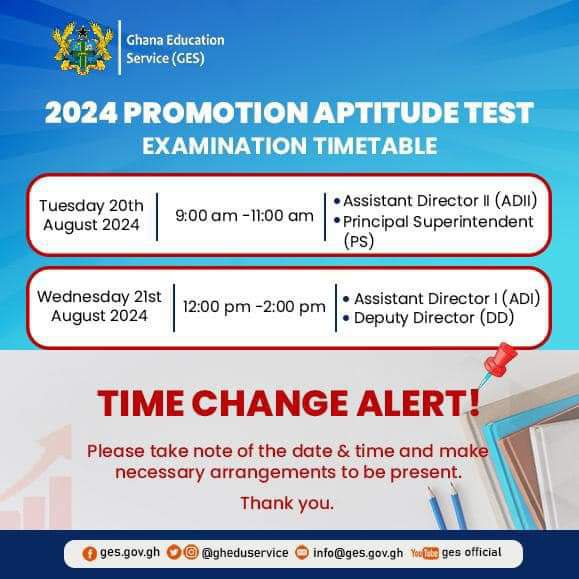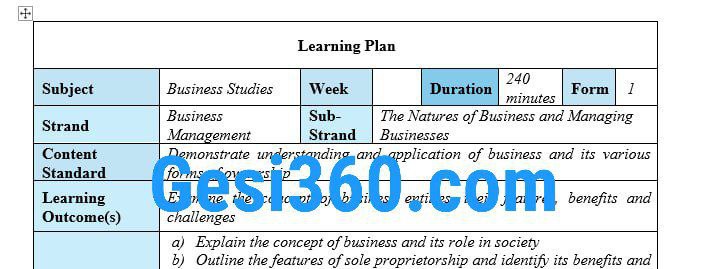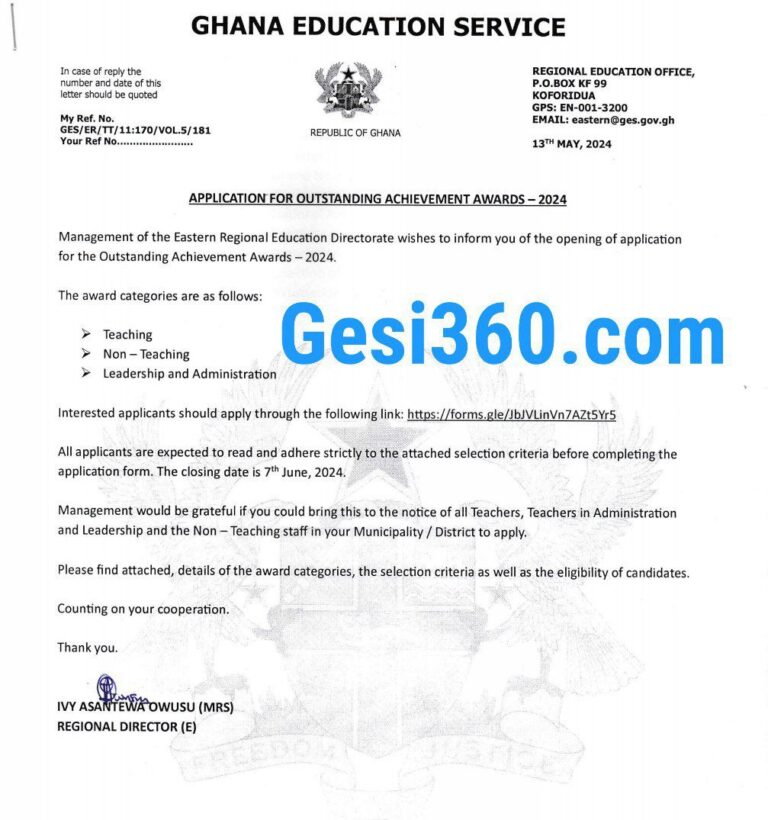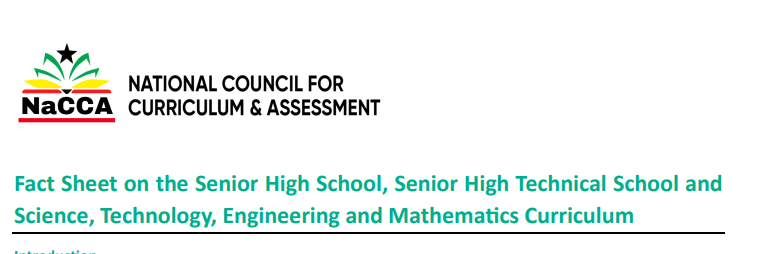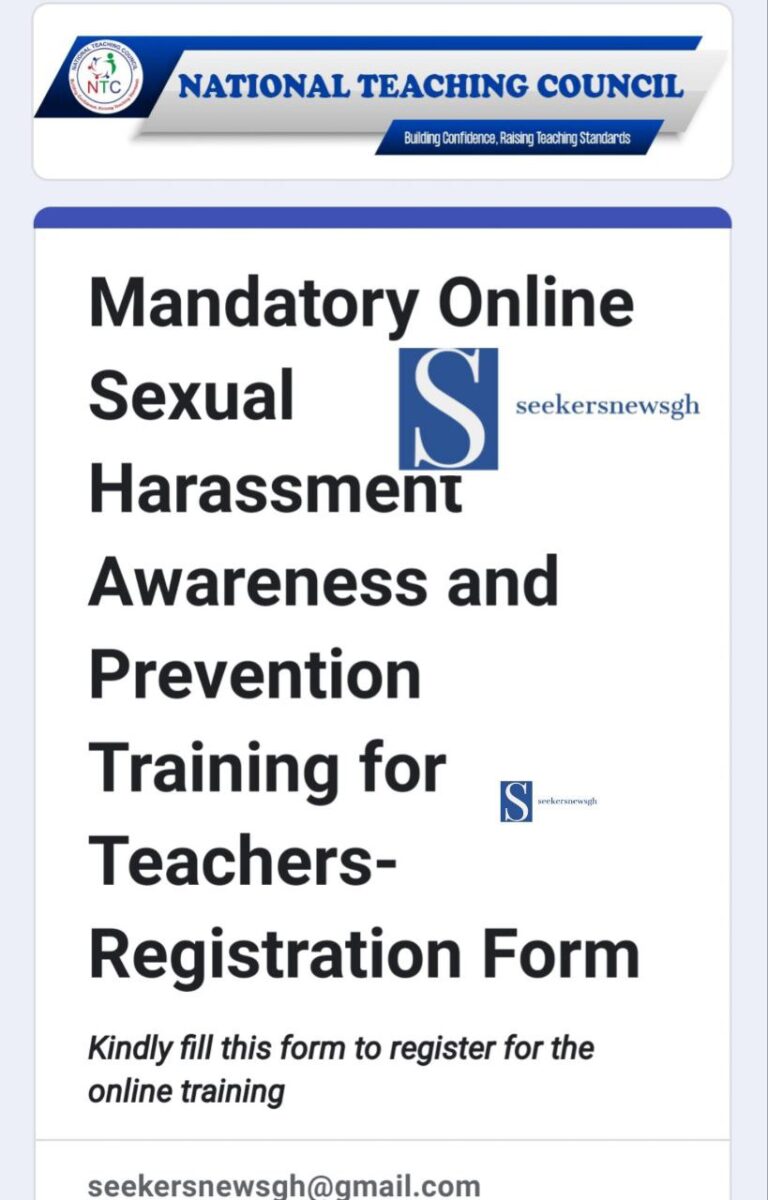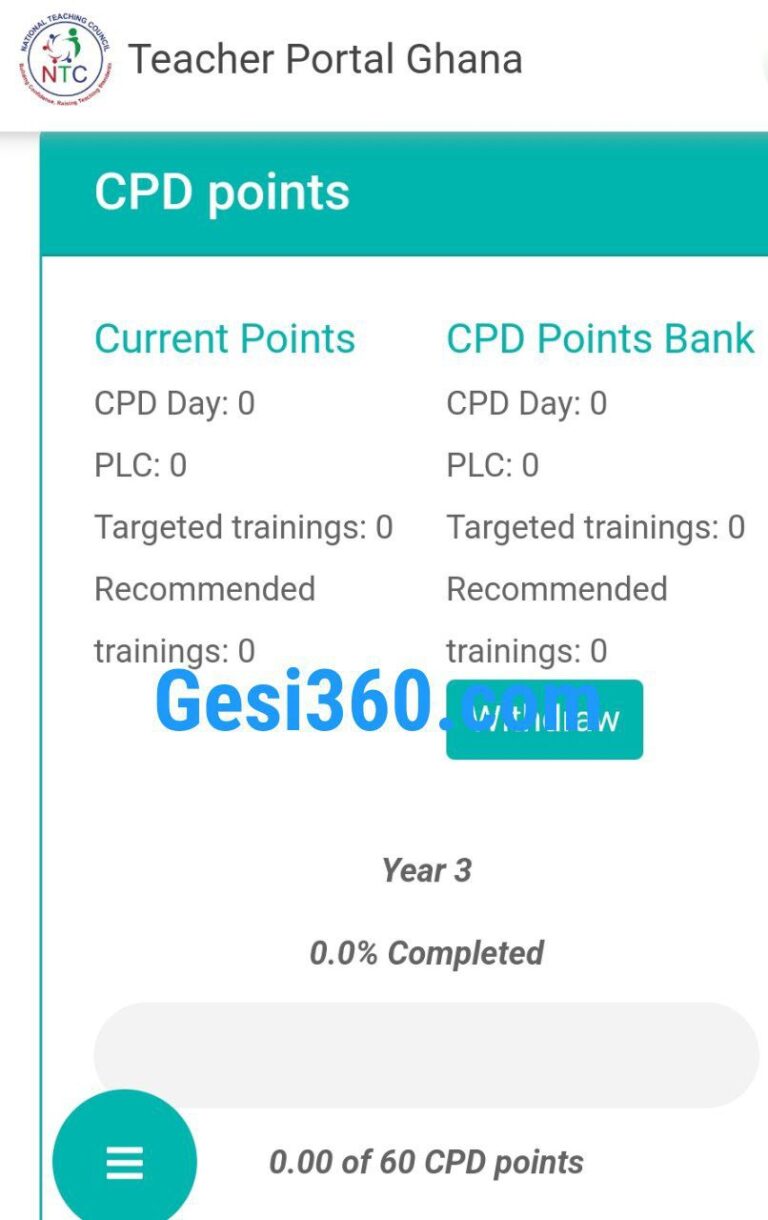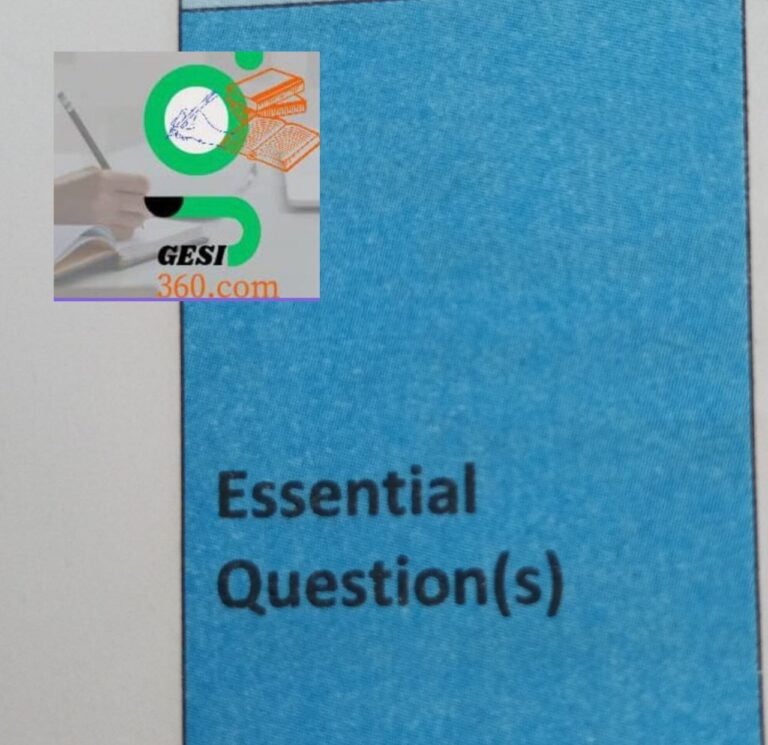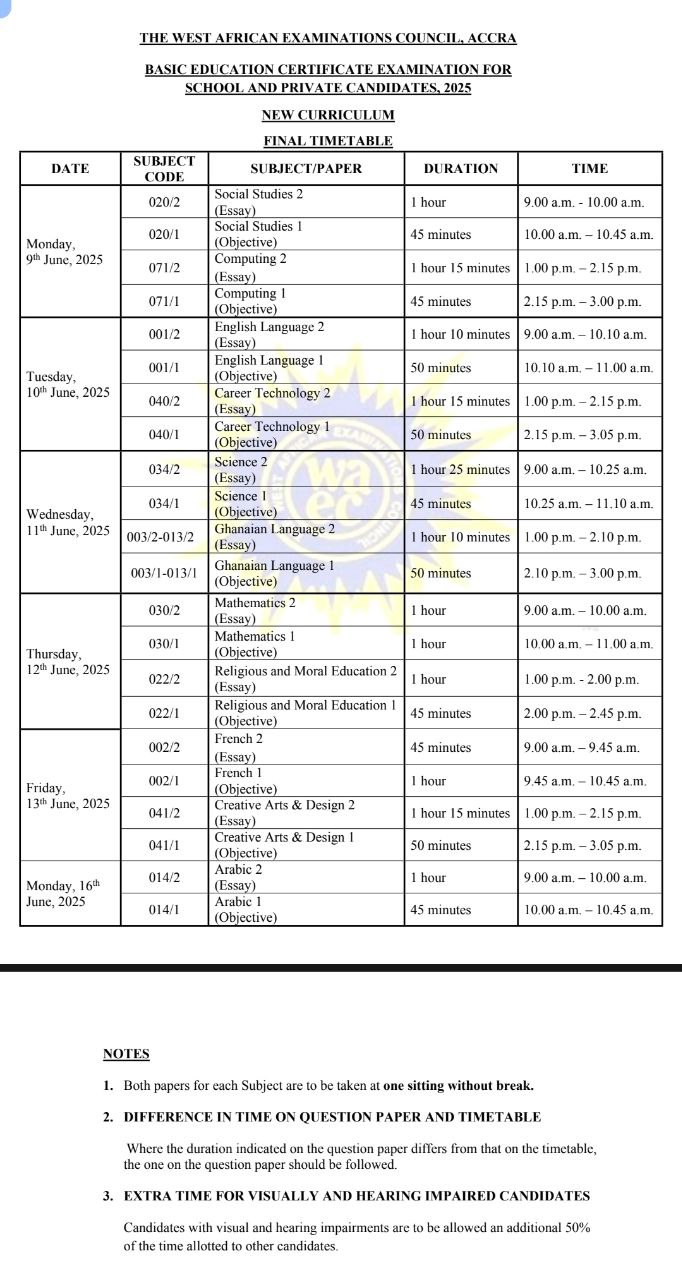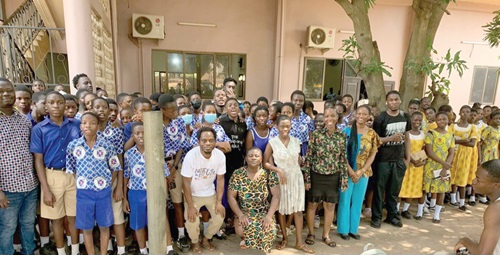DD (DEPUTY DIRECTOR) PROMOTION APTITUDE QUESTIONS AND ANSWERS DD FEBRUARY, 2020 JOIN US TELEGRAM SECTION A MULTIPLE...
Ghana Teaching Standards
GES Promotion Index Numbers YOU CAN JOIN OUR TELEGRAM OR WHATSAPP OR FACEBOOK PAGES Update Teachers who...
New Lesson Plan ( Learning Planner ) For SHS/SHTS/STEM Curriculum Features and Details All is set for...
Apply for the Outstanding Achievement Award GES/ Eastern Regional Education Directorate APPLICATION FOR OUTSTANDING ACHIEVEMENT AWARDS 2024...
Subjects in the New SHS/SHTS/STEM Curriculum Here are the Various Subjects in the New Curriculum Note that...
Reasons why sexual awareness and prevention is important for the Teacher Is Sexual harassment Awareness and Prevention...
New Subject Combinations for SHS/SHTS/STEM Schools in Ghana The SHS, SHTS, and STEM curriculum introduces more flexibility...
Free New NTC Mandatory Course On Sexual Harassment Awareness and Prevention NTC has sent an SMS to...
NTC Reforms on How to Acquire CPD Points for License Renewal Here is the breakdown of the...
How to Draft Essential Questions in Lesson Planner with Examples Crafting essential questions is a crucial aspect...

